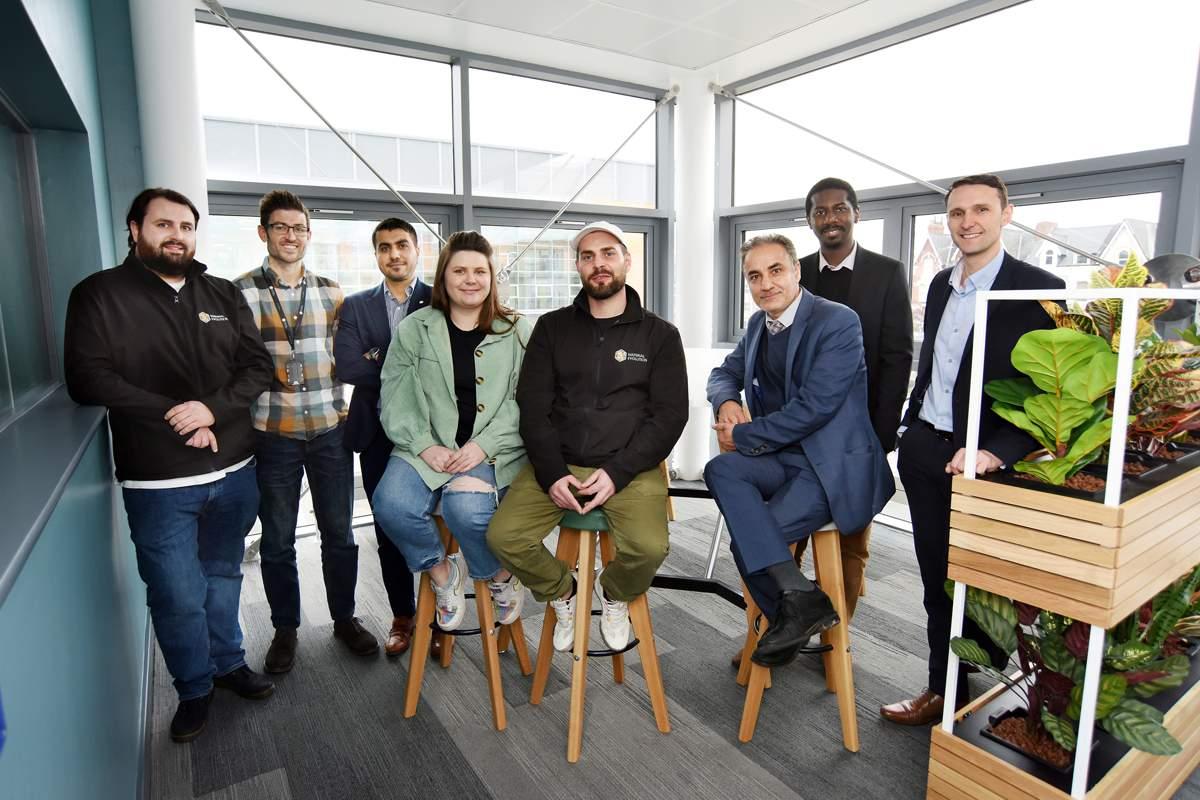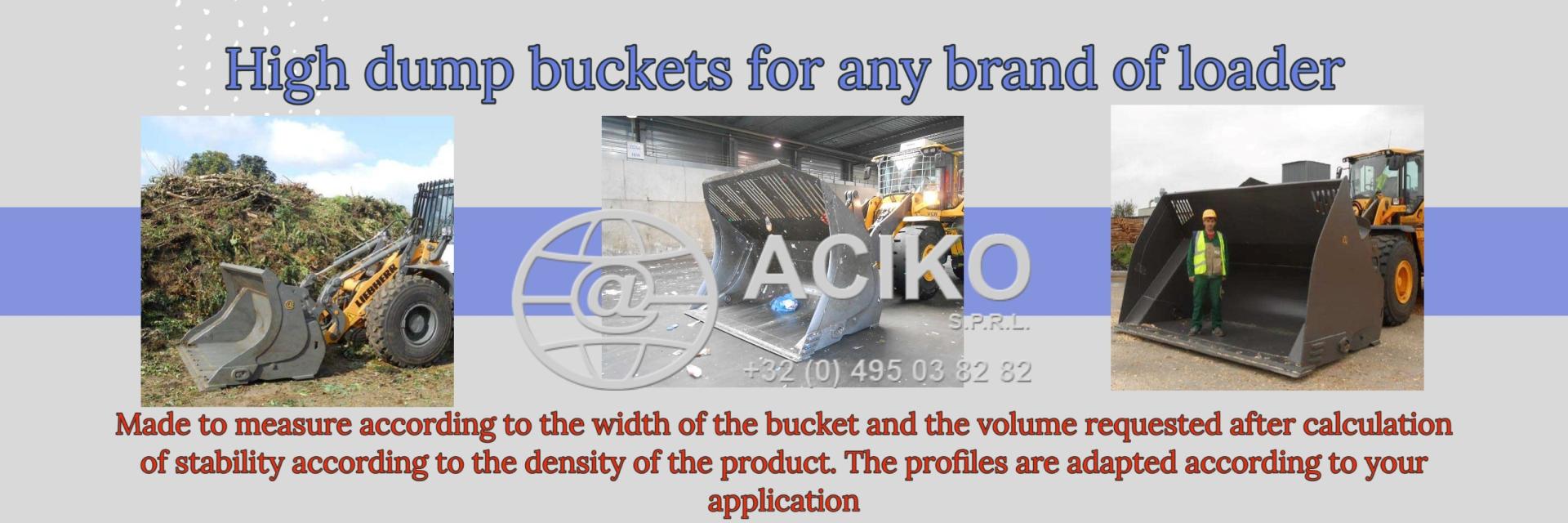Teesside University Researchers are helping to create Carbon Neutral Cement
 16/01/23-FR-English-NL-footer
16/01/23-FR-English-NL-footer
Des chercheurs de l'Université de Teesside aident à créer un ciment neutre en carbone
 Image-The Mevocrete project team. Seated at front, L-R: Dr Elizabeth Gilligan, Founder and CEO at Material Evolution; Kieran Gilligan, Co-Founder, Material Evolution; Dr Sina Rezaei Gomari , Mevocrete project principal investigator (PI). Standing. L-R: Sam Clark, Co-Founder, Material Evolution; James Bramley, Project Manager, Material Evolution; Dr Kamal Elyasi, Research Associate, Teesside University; Dr Tariq Ahmed, Lecturer in Chemical Engineering and Mevocrete project Co-Investigator; Professor David Hughes, Associate Dean (Research and Innovation) and Mevocrete project Co-Investigator.
Image-The Mevocrete project team. Seated at front, L-R: Dr Elizabeth Gilligan, Founder and CEO at Material Evolution; Kieran Gilligan, Co-Founder, Material Evolution; Dr Sina Rezaei Gomari , Mevocrete project principal investigator (PI). Standing. L-R: Sam Clark, Co-Founder, Material Evolution; James Bramley, Project Manager, Material Evolution; Dr Kamal Elyasi, Research Associate, Teesside University; Dr Tariq Ahmed, Lecturer in Chemical Engineering and Mevocrete project Co-Investigator; Professor David Hughes, Associate Dean (Research and Innovation) and Mevocrete project Co-Investigator.
Un matériau de construction écologiquement durable qui pourrait réduire considérablement l'empreinte carbone de l'industrie de la construction est en cours de développement avec le soutien de l'Université de Teesside.
Des universitaires de l'Université collaborent avec des partenaires industriels sur un projet de 7,6 millions de livres sterling intitulé «Mevocrete» visant à développer une nouvelle forme de béton fabriqué à partir de sous-produits des industries sidérurgiques et chimiques.
Le produit résultant du projet Mevocrete émet jusqu'à 85 % de dioxyde de carbone en moins par rapport à un béton traditionnel fabriqué à partir de ciment Portland ordinaire (OPC).
Le béton est un matériau essentiel dans l'industrie de la construction et le marché mondial du béton vaut environ 500 milliards de livres sterling par an.
Cependant, c'est l'un des plus grands émetteurs de dioxyde de carbone, représentant jusqu'à 8 % des émissions mondiales de gaz à effet de serre.
Le projet Mevocrete utilise un nouveau matériau de construction révolutionnaire fabriqué à partir de déchets de scories d'acier breveté par la société Material Evolution Ltd, basée à Middlesbrough.
La grande majorité des déchets de la production d'acier sont envoyés à la décharge et on estime qu'au Royaume-Uni seulement, il y a 62 millions de tonnes de déchets de laitier inutilisés.
L'Université de Teesside a obtenu un financement d'Innovate UK pour travailler avec Material Evolution afin d'aider l'entreprise à développer sa technologie afin de créer une installation sur site à grande échelle pour la production de ciment à partir de déchets de scories d'acier à Teesworks.
Des chercheurs de l'École d'informatique, d'ingénierie et de technologies numériques de l'Université analyseront le laitier d'acier et sa composition chimique et mesureront son efficacité à séquestrer le carbone.
L'année prochaine verra l'ouverture du Net Zero Industry Innovation Centre (NZIIC) de 13,1 millions de livres sterling de l'Université de Teesside, qui sera au cœur de la stratégie d'innovation régionale de la Tees Valley Combined Authority, positionnant Teesside fermement au cœur de la révolution industrielle verte du Royaume-Uni.
Des universitaires du SCEDT ont obtenu un financement pour mener des recherches afin de développer un matériau concret Net Zero.
Le chef de projet de l'université, le Dr Sina Rezaei Gomari, a déclaré : « Pour que le Royaume-Uni atteigne ses objectifs Net Zero, il est impératif de trouver de nouvelles façons de décarboniser l'industrie de la construction, et ce projet a le potentiel d'avoir un impact majeur sur la réduction des émissions de gaz à effet de serre. émissions de gaz."
Le professeur David Hughes, doyen associé (Recherche et innovation) et co-responsable du projet Mevocrete, a ajouté : « À l'Université de Teesside, nous nous engageons à trouver de nouvelles façons de forger une économie industrielle plus intelligente et plus verte.
"Par conséquent, nous sommes ravis de pouvoir aider Material Evolution à créer une approche circulaire pour traiter les déchets historiques de la production d'acier de la région tout en réduisant simultanément l'empreinte carbone de l'industrie de la construction."
Le Dr Elizabeth Gilligan, fondatrice et PDG de Material Evolution, a ajouté : « Nous sommes vraiment ravis de nous lancer dans ce projet avec l'Université de Teesside.
« Le projet Mevocrete examine l'ensemble de la chaîne d'approvisionnement, de la matière première à l'utilisateur final. À la fin du projet, nous aurons une ligne de production Mevocrete dédiée, fournissant un ciment véritablement négatif en carbone, qui, surtout, aura été testé et vérifié de manière indépendante.
"En utilisant notre technologie de fusion alcaline à très faible énergie et en utilisant des flux de déchets hyper-locaux, nous pouvons éliminer le besoin de ciment Portland ordinaire dans les produits en béton. L'industrie doit avoir des innovations comme celle-ci si nous voulons répondre à notre besoin de décarboner rapidement et radicalement.
NJC.© info Teesside University Researchers
----------------------------------------------------------------------------------------------------------------------
 16/01/23-English
16/01/23-English
Teesside University Researchers are helping to create Carbon Neutral Cement
 Image-The Mevocrete project team. Seated at front, L-R: Dr Elizabeth Gilligan, Founder and CEO at Material Evolution; Kieran Gilligan, Co-Founder, Material Evolution; Dr Sina Rezaei Gomari , Mevocrete project principal investigator (PI). Standing. L-R: Sam Clark, Co-Founder, Material Evolution; James Bramley, Project Manager, Material Evolution; Dr Kamal Elyasi, Research Associate, Teesside University; Dr Tariq Ahmed, Lecturer in Chemical Engineering and Mevocrete project Co-Investigator; Professor David Hughes, Associate Dean (Research and Innovation) and Mevocrete project Co-Investigator.
Image-The Mevocrete project team. Seated at front, L-R: Dr Elizabeth Gilligan, Founder and CEO at Material Evolution; Kieran Gilligan, Co-Founder, Material Evolution; Dr Sina Rezaei Gomari , Mevocrete project principal investigator (PI). Standing. L-R: Sam Clark, Co-Founder, Material Evolution; James Bramley, Project Manager, Material Evolution; Dr Kamal Elyasi, Research Associate, Teesside University; Dr Tariq Ahmed, Lecturer in Chemical Engineering and Mevocrete project Co-Investigator; Professor David Hughes, Associate Dean (Research and Innovation) and Mevocrete project Co-Investigator.
An environmentally sustainable building material which could significantly reduce the carbon footprint of the construction industry is being developed with the support of Teesside University.
Academics from the University are collaborating with industry partners on a £7.6m project entitled ‘Mevocrete’ aiming to develop a new form of concrete made from the by-products of the steel and chemical industries.
The resulting product from the Mevocrete project emits up to 85% less carbon dioxide when compared to a traditional concrete made from Ordinary Portland Cement (OPC).
Concrete is an essential material in the construction industry and the global concrete market is worth approximately £500b annually.
However, it is one of the single biggest emitters of carbon dioxide accounting for up to eight percent of global greenhouse gas emissions.
The Mevocrete project is working with a revolutionary new construction material made using waste steel slag patented by Middlesbrough-based company Material Evolution Ltd.
The vast majority of waste materials from steel production are sent to landfill and it is estimated that in the UK alone there are 62m tons of unused slag waste.
Teesside University has won funding from Innovate UK to work with Material Evolution to help the business scale up its technology to create a full scale on-site facility for cement production using waste steel slag at Teesworks.
Researchers from the University’s School of Computing, Engineering & Digital Technologies will analyse the steel slag and its chemical composition and measure how efficient it is at sequestering carbon.
Next year will see the opening of Teesside University’s £13.1m Net Zero Industry Innovation Centre (NZIIC) which will be central to the Tees Valley Combined Authority’s regional innovation strategy, positioning Teesside firmly at the heart of the UK’s green industrial revolution.
Academics in SCEDT have won funding to carry out research to develop a Net Zero concrete material.
The University’s project lead, Dr Sina Rezaei Gomari, said: “For the UK to meet its Net Zero targets it is imperative that new ways to decarbonise the construction industry are found, and this project has the potential to have a major impact in reducing greenhouse gas emissions.”
Professor David Hughes, Associate Dean (Research and Innovation) and co-lead of the Mevocrete project, added: “At Teesside University we are dedicated to finding new ways to forge a smarter, greener industrial economy.
“Therefore we are delighted to be able to help Material Evolution create a circular approach to dealing with the historic waste material from the region’s steel production while simultaneously reducing the carbon footprint of the construction industry.”
Dr Elizabeth Gilligan, founder and CEO of Material Evolution, added: “We are really excited to be embarking on this project with Teesside University.
“The Mevocrete project examines the entire supply-chain from the feedstock to end user. At the end of the project, we will have a dedicated Mevocrete production line, delivering a truly carbon negative cement, which importantly, will have been independently tested and verified.
“By utilising our ultra-low energy alkali-fusion technology, and using hyper-local waste streams, we can eliminate the need for Ordinary Portland Cement in concrete products. The industry has to have innovations like this if we are to meet our need to rapidly and radically decarbonise.”
NJC.© info Teesside University Researchers
------------------------------------------------------------------------------------------------------------------
 16/01/23-NL
16/01/23-NL
Teesside University Onderzoekers helpen bij het creëren van koolstofneutraal cement
 Image-The Mevocrete project team. Seated at front, L-R: Dr Elizabeth Gilligan, Founder and CEO at Material Evolution; Kieran Gilligan, Co-Founder, Material Evolution; Dr Sina Rezaei Gomari , Mevocrete project principal investigator (PI). Standing. L-R: Sam Clark, Co-Founder, Material Evolution; James Bramley, Project Manager, Material Evolution; Dr Kamal Elyasi, Research Associate, Teesside University; Dr Tariq Ahmed, Lecturer in Chemical Engineering and Mevocrete project Co-Investigator; Professor David Hughes, Associate Dean (Research and Innovation) and Mevocrete project Co-Investigator.
Image-The Mevocrete project team. Seated at front, L-R: Dr Elizabeth Gilligan, Founder and CEO at Material Evolution; Kieran Gilligan, Co-Founder, Material Evolution; Dr Sina Rezaei Gomari , Mevocrete project principal investigator (PI). Standing. L-R: Sam Clark, Co-Founder, Material Evolution; James Bramley, Project Manager, Material Evolution; Dr Kamal Elyasi, Research Associate, Teesside University; Dr Tariq Ahmed, Lecturer in Chemical Engineering and Mevocrete project Co-Investigator; Professor David Hughes, Associate Dean (Research and Innovation) and Mevocrete project Co-Investigator.
Met de steun van Teesside University wordt een ecologisch duurzaam bouwmateriaal ontwikkeld dat de ecologische voetafdruk van de bouwsector aanzienlijk kan verminderen.
Academici van de universiteit werken samen met industriële partners aan een project van £ 7,6 miljoen met de titel 'Mevocrete', gericht op de ontwikkeling van een nieuwe vorm van beton gemaakt van de bijproducten van de staal- en chemische industrie.
Het resulterende product van het Mevocrete-project stoot tot 85% minder koolstofdioxide uit in vergelijking met traditioneel beton gemaakt van gewoon Portlandcement (OPC).
Beton is een essentieel materiaal in de bouwsector en de wereldwijde betonmarkt is jaarlijks ongeveer £ 500 miljard waard.
Het is echter een van de grootste uitstoters van koolstofdioxide, goed voor acht procent van de wereldwijde uitstoot van broeikasgassen.
Het Mevocrete-project werkt met een revolutionair nieuw constructiemateriaal gemaakt met behulp van afvalstaalslakken, gepatenteerd door het in Middlesbrough gevestigde bedrijf Material Evolution Ltd.
De overgrote meerderheid van de afvalstoffen van de staalproductie wordt naar de stortplaats gestuurd en naar schatting is er alleen al in het VK 62 miljoen ton ongebruikt slakkenafval.
Teesside University heeft financiering gewonnen van Innovate UK om samen te werken met Material Evolution om het bedrijf te helpen zijn technologie op te schalen om een volledige on-site faciliteit te creëren voor cementproductie met behulp van afvalstaalslakken bij Teesworks.
Onderzoekers van de School of Computing, Engineering & Digital Technologies van de universiteit zullen de staalslak en zijn chemische samenstelling analyseren en meten hoe efficiënt het is in het vastleggen van koolstof.
Volgend jaar zal het Net Zero Industry Innovation Centre (NZIIC) van Teesside University met een waarde van £ 13,1 miljoen worden geopend. Dit centrum zal centraal staan in de regionale innovatiestrategie van de Tees Valley Combined Authority en zal Teesside stevig positioneren in het hart van de groene industriële revolutie in het VK.
Academici in SCEDT hebben financiering gewonnen om onderzoek uit te voeren om een Net Zero-betonmateriaal te ontwikkelen.
De projectleider van de universiteit, dr. Sina Rezaei Gomari, zei: "Als het VK zijn Net Zero-doelstellingen wil halen, is het absoluut noodzakelijk dat er nieuwe manieren worden gevonden om de bouwsector koolstofvrij te maken, en dit project heeft het potentieel om een grote impact te hebben op het verminderen van de uitstoot van gassen.”
Professor David Hughes, Associate Dean (Onderzoek en Innovatie) en co-leider van het Mevocrete-project, voegde toe: “Bij Teesside University zijn we toegewijd aan het vinden van nieuwe manieren om een slimmere, groenere industriële economie tot stand te brengen.
"Daarom zijn we verheugd om Material Evolution te kunnen helpen bij het creëren van een circulaire aanpak voor het omgaan met het historische afvalmateriaal van de staalproductie in de regio en tegelijkertijd de ecologische voetafdruk van de bouwsector te verkleinen."
Dr. Elizabeth Gilligan, oprichter en CEO van Material Evolution, voegde toe: “We zijn erg verheugd om dit project met Teesside University aan te gaan.
“Het Mevocrete-project onderzoekt de hele toeleveringsketen, van grondstof tot eindgebruiker. Aan het einde van het project zullen we een speciale Mevocrete-productielijn hebben, die een echt koolstofnegatief cement levert, dat, belangrijker nog, onafhankelijk getest en geverifieerd zal zijn.
“Door gebruik te maken van onze alkalifusietechnologie met ultralage energie en door gebruik te maken van hyperlokale afvalstromen, kunnen we de behoefte aan gewoon portlandcement in betonproducten elimineren. De industrie heeft dergelijke innovaties nodig als we willen voldoen aan onze behoefte om snel en radicaal koolstofarm te worden.”
NJC.© info Teesside University Researchers
--------------------------------------------------------------------------------------------------------------------
Date de dernière mise à jour : 16/01/2023
















